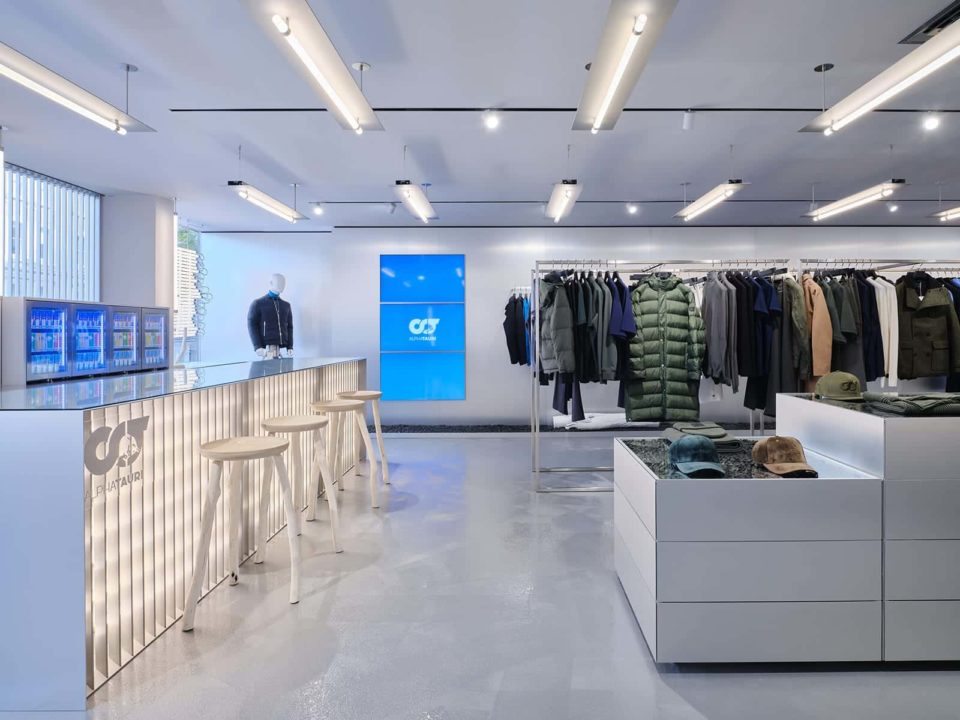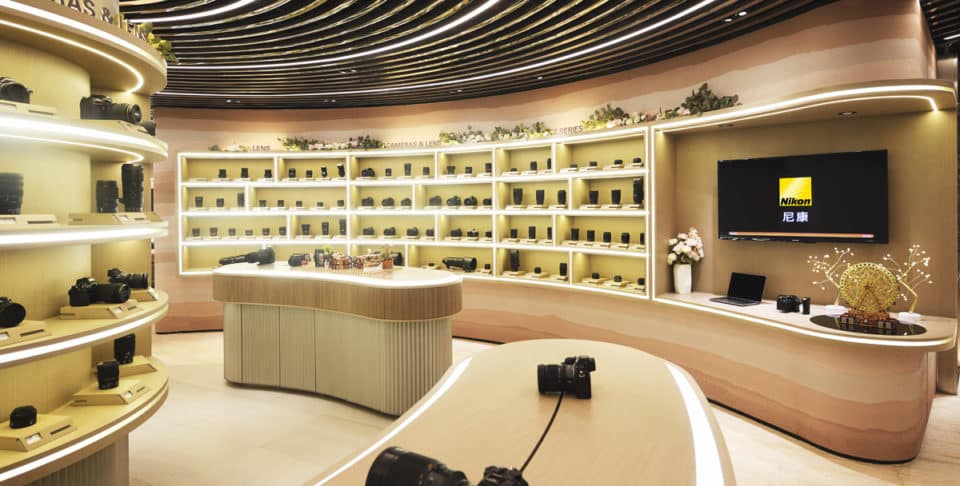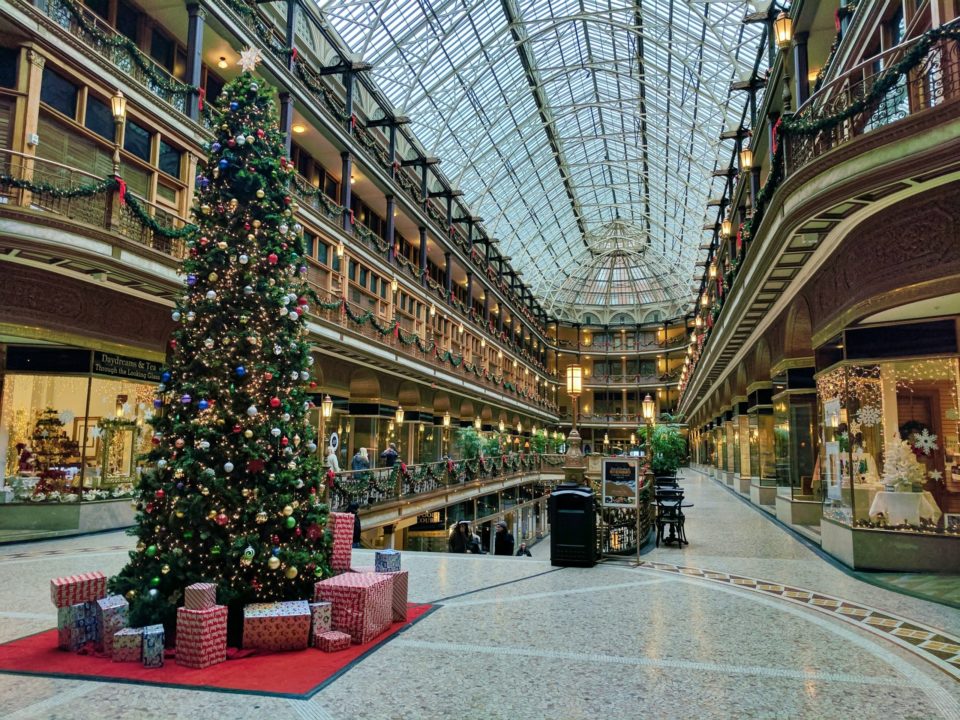Locally made: Our/Berlin on one-location retail production and sales
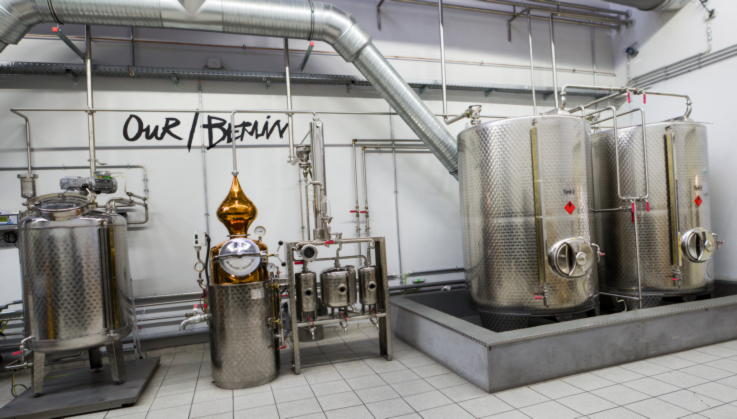
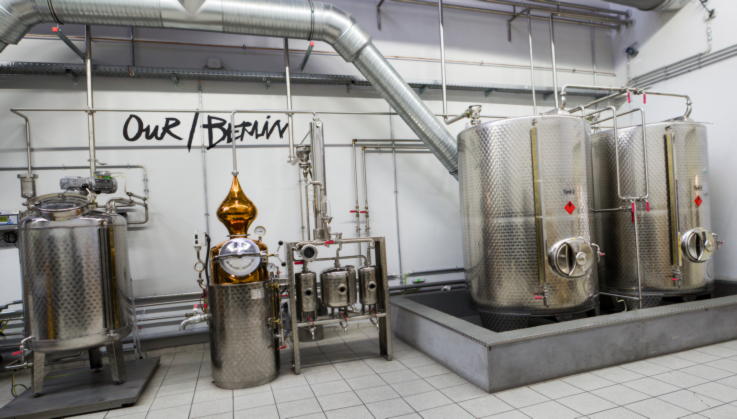
Conceived in Sweden in 2011, Our/Vodka is not your typical drinks brand. For one all of its products are locally made in micro-distilleries located in different cities across the world, from London to Berlin, Amsterdam to Los Angeles. For another each distillery operates independently as its own brand and its own uniquely-tasting product. What ties them together is the Our name, base recipe and distillation process, and bottle.
With Berlin the concept’s pilot location since 2013, we caught up with Our/Berlin’s managing director Klas Kronaas to find out about what local production really means, how a network of stores can learn from each other, and the value of having shop, office and manufacturing operations in one place:
Could you tell me about the Our/Vodka concept?
Our/Vodka was thought up by a lady called Asa Caap who was the innovation director for Absolut Vodka at the time. She had an idea to create a vodka brand with micro-distilleries in key cities around the world, so she got together with five other entrepreneurs to pitch the idea to different investors, and eventually Pernod Ricard came on as financial backers of project.
Each micro-distillery is run as an independent company with local partners, who are the distillers, which means that the brand in each city becomes quite different. Our/Berlin has a very Berlin vibe to the brand, it’s very artsy, whereas if you look at London, the two partners there are from the gastronomy industry so they are focusing a bit more on high-end restaurants.
So even though we belong to the same parent company Our/Vodka, each distillery does their own thing. The only thing that is the same is that we use the same bottle and we use the same distillation process, but we use local ingredients so the vodkas also end up tasting different.
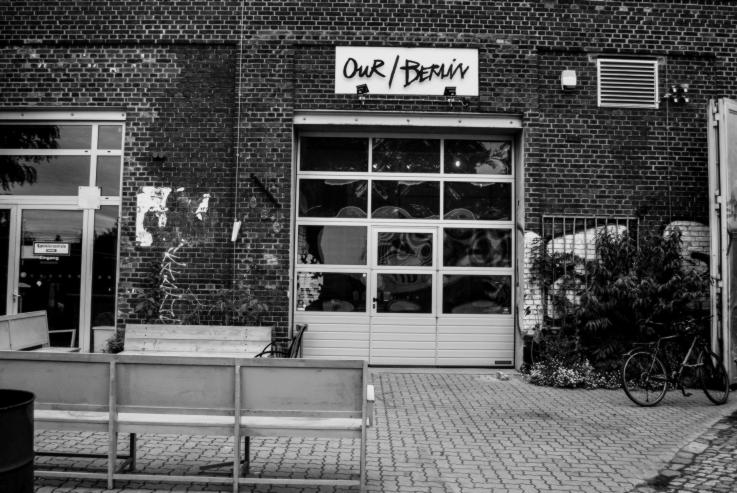
Berlin was the pilot location for the project – why was the city chosen?
I think it was a combination of finding some really good partners fast, as well as the fact that the whole legislation and permit process for opening a vodka distillery was faster in Berlin than most other places.
I also think that Berlin is seen in Europe as one of the last true arts, crafts, fashion hubs. If you look at a lot of the other big cities around Europe, like Paris or London, it’s more high fashion and big brands, rather than handicrafts and making of things. I think Berlin is one of the few places still seen like that.
Has anything been learnt from the Berlin pilot that has been rolled-out in the other locations?
I think Berlin is very much a trial market for a lot of things. As an example, we launched these tea infusion kits for the vodka in collaboration with a local high premium tea company called Paper & Tea. We created an Earl Grey infusion, White Tea infusion, Macha infusion, which got a lot of attention and has changed a bit the whole concept of the vodka.
This infusion concept was then rolled out as a global project for all the distilleries because it was doing quite well here in Berlin. Now people can infuse their vodka with juniper, which gives it a gin twist, we have a citrus infusion where people can use a citrus tea, we have an oak infusion, but it all started in Berlin.
Of course the sharing of ideas also goes the other way. We get a lot of things from the other distilleries, if they do something fantastic with a material or initiative or event then we can emulate that. There’s a family feel to the brand.
How do the different cities get chosen? Do they have anything in common?
I think that when we look at Detroit and Berlin they are a little bit similar. When the Detroit economy went down it also meant it turned into a bit of a hub for arts and crafts and there are a lot of upcoming artists and fashion there. But otherwise if you look at Los Angeles or London or Amsterdam, I think it has been more about whether the city has any special appeal when it comes to making a personality for the vodka. Also finding the right partners has been more important than the cities for the brand.
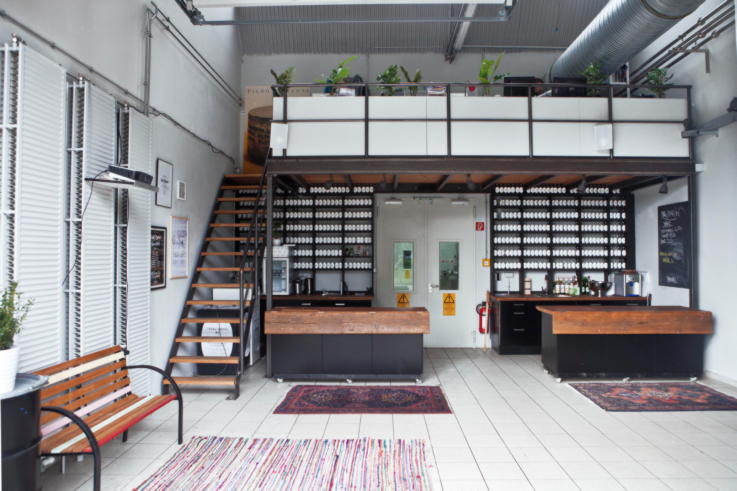
Your distillery space is also home to a shop, bar and office – why did you choose to have everything in one place?
In the front of the space we have a small licensed bar and a little shop, and we have our working space with desks above the bar, so that’s our social space where people can come in. They can buy the vodka or try it in the bar, and meet us, but we also have glass doors into the distillery so anyone who comes in can also get a distillery tour.
We try to really highlight that fact that we make the vodka here. One thing we always stress is that people actually come here and try the vodka so that they actually understand its quality, because the product itself is really good. I think that’s something that sometimes gets forgotten in concepts like this – if the product isn’t good it won’t work anyway.
We want people to see and understand what makes the product different, because in the end vodka has not been a very sexy alcohol for the last couple of years. This is something that this project is trying to change, what vodka is and what vodka has become, trying to turn it into something new, a bit cooler and you actually want to mix in a good way. I think that the way vodka has been seen recently it is either something that you hide in a drink and don’t want to taste, or you drink a one litre super cheap vodka just because you want to get drunk. The whole concept of Our/Vodka is to try and bring vodka back as a social drink, something that you actually want to share with your friends.
I think the most interesting thing is that our office is where the product is made. Anyone who comes for a meeting or wants to deal with anything to do with Our/Berlin comes into contact with our product and sees where it’s made. I think for a micro-distillery like us we should sit where the product is made because we are not that many people. We are three full time employees inside the distillery, so it doesn’t really make sense to have a head office elsewhere.
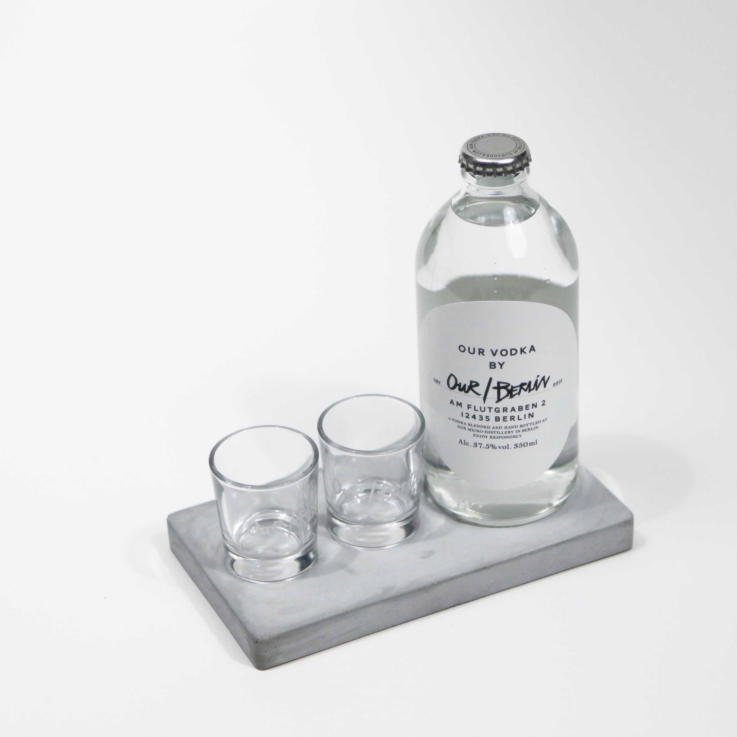
Are you in the same space as when the company first started? Has it expanded at all?
It’s the same space. We have a theoretical max capacity and I think that will be what dictates if we need to get bigger. We are a startup though and I think that we don’t really have the resources or time to move or change too much, although we remodel the bar and shop every now and then, to shake things up a bit.
Moving a distillation unit is a huge project so I think we will be here until we max out our capacity, and then we will look to see if we can get a second warehouse somewhere close or whether we move people to an office, but I think that’s at least five years into the future.
Are you the only place selling Our/Berlin vodka or do you supply other stores and bars as well?
We sell through stores and some bars as well – one has a signature drink using our vodka. Given the price of the bottle and what we are, we will not be in discount stores – it’s about stores that appreciate the concept and brand and can sell a premium vodka. I don’t think we’re super picky, in the end if there’s a store that likes our vodka and wants to sell it then we want to support them. We can have a super cool, best product ever, but if the consumer can’t find it it’s not going to work anyway.
How do you marry the Our/Vodka local ethos with the backing of Pernod Ricard? How involved are they?
Not at all – the way I describe it is that every startup has a bank and that’s basically what Pernod Ricard is for us. They funded the project and paid the bills until it turned a profit. In fact we’re actually not allowed to use their resources, because we’re supposed to be independent.
Through the global Our/Vodka company, we have some fantastic expertise to help us out, and some of the people came from Absolut or Pernod Ricard so they have knowledge we don’t have. All the micro-distilleries are run by people who have no background in big companies or drink companies, so we can get some insights from the people who work for global brand.
Can you tell us more about how you work locally?
Each distillery uses as local ingredients as we can. The one ingredient that we all have in common is that we use the same yeast, the composition of which Our/Vodka owns.
In Berlin we tried to find a very good ethanol source close by, so we still use a German wheat but it’s not from Berlin. But we use Berlin tap water that we demineralise and purify in our own little water treatment plant.
We try to do as many local initiatives as we can and we have other collaborations that we are looking at, both for products and product offering, but also for putting on events.
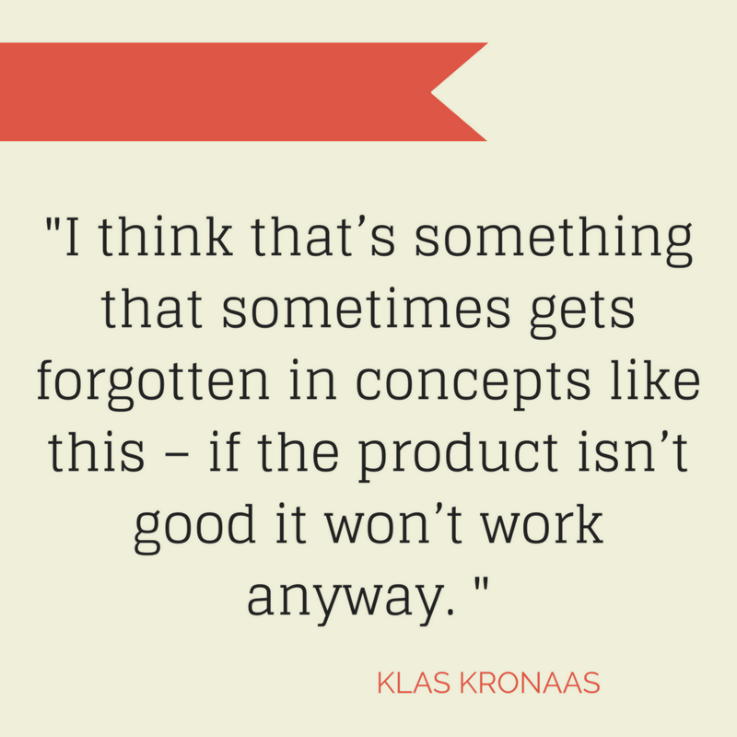
Do you think this localised element of retail is going to get more important?
For me I see that as a trend and I don’t see that going away. It might not have anything to do with people thinking big brands don’t have good quality, actually I think there are big brands with fantastic quality, but if we use the example of a famous tubed crisp brand, they make the tube in one country, they grow the potatoes in another country, they use a lid from a third country, they produce it in a fourth country and they ship it to a fifth country. I think this is the thing that people will have more and more issue with. The more aware consumers get the more popular I think local production is going to be.
You also run an online store – can you tell me about the relationship between this and the micro-distillery?
We have some sales through our website, but it’s a very small amount. We are very much run as an offline business.
We have a lot of people who come in and buy something, but then they might want to repeat order directly from the website, because they know us and they don’t want to buy through one of the big retailers but would rather buy directly from us. Likewise, if there’s a customer in Cologne for example then it’s not easy for them to come to the distillery, so they are just buying from the website. So I think they are both complimenting each other, but also working separately.
If you look at marketing, then social media is very important for us as we don’t really have a marketing budget. That’s also part of the whole concept, we don’t really want to do the traditional full size ad with a bottle in a nice, polished way. Social media and events are our main marketing tools.
Are there customers who visit one Our/Vodka distillery and then buy from the others to try them all?
Absolutely. As we were the first store and most widely known, we usually hear stories like that from the other distilleries. It’s more often that someone went into the other distilleries because they know about Our/Berlin and want to try the other versions. If you consider that we opened in 2013 and London opened a year ago, then of course there is a gap with how much brand awareness you can get out. I think though if you look at the other locations now they are very much creating their own brands.
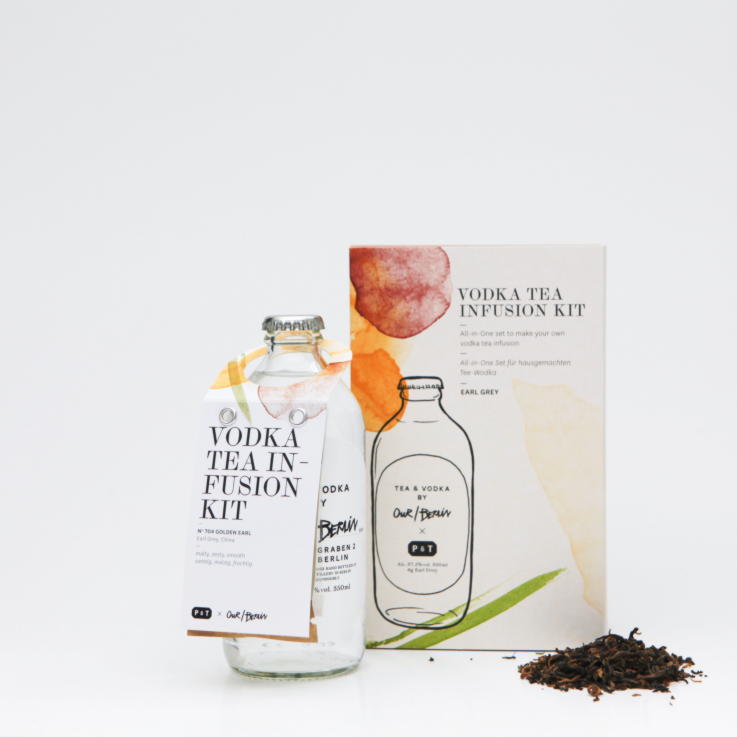
The whole Our/Berlin bar/micro-distillery concept is quite experiential – do you think customers are looking for that more and more?
If you look at the online retailers they are growing like crazy too, so I think there’s a need for both in the consumer mind. There are some things where you can’t be bothered to go and get it in the store and ordering online is the most convenient way of shopping. But then there is this other thing ‘I really enjoy and appreciate the craft and handiwork of these products, and I enjoy the experience of being there and I’m willing to pay a bit more for that experience’ – I think that’s what we are. This concept might not work for laundry detergent, you probably don’t want a handicraft detergent, you just want it to be there and convenient when you do your laundry.
What is next for Our/Berlin?
As a brand, Our/Vodka is opening micro-distilleries in three more cities this year – New York, Miami and Houston. For us in Berlin we are growing quite fast, so we need to be able to handle that and are trying to figure out new ways of working when volumes go up. It’s trying to maintain the roots of what the brand is, being very local, but at the same time as volumes go up be a bit more structured and planned. It’s important to still be what we are and still be able to handle when more and more people discover the brand.
Images courtesy of Our/Berlin

